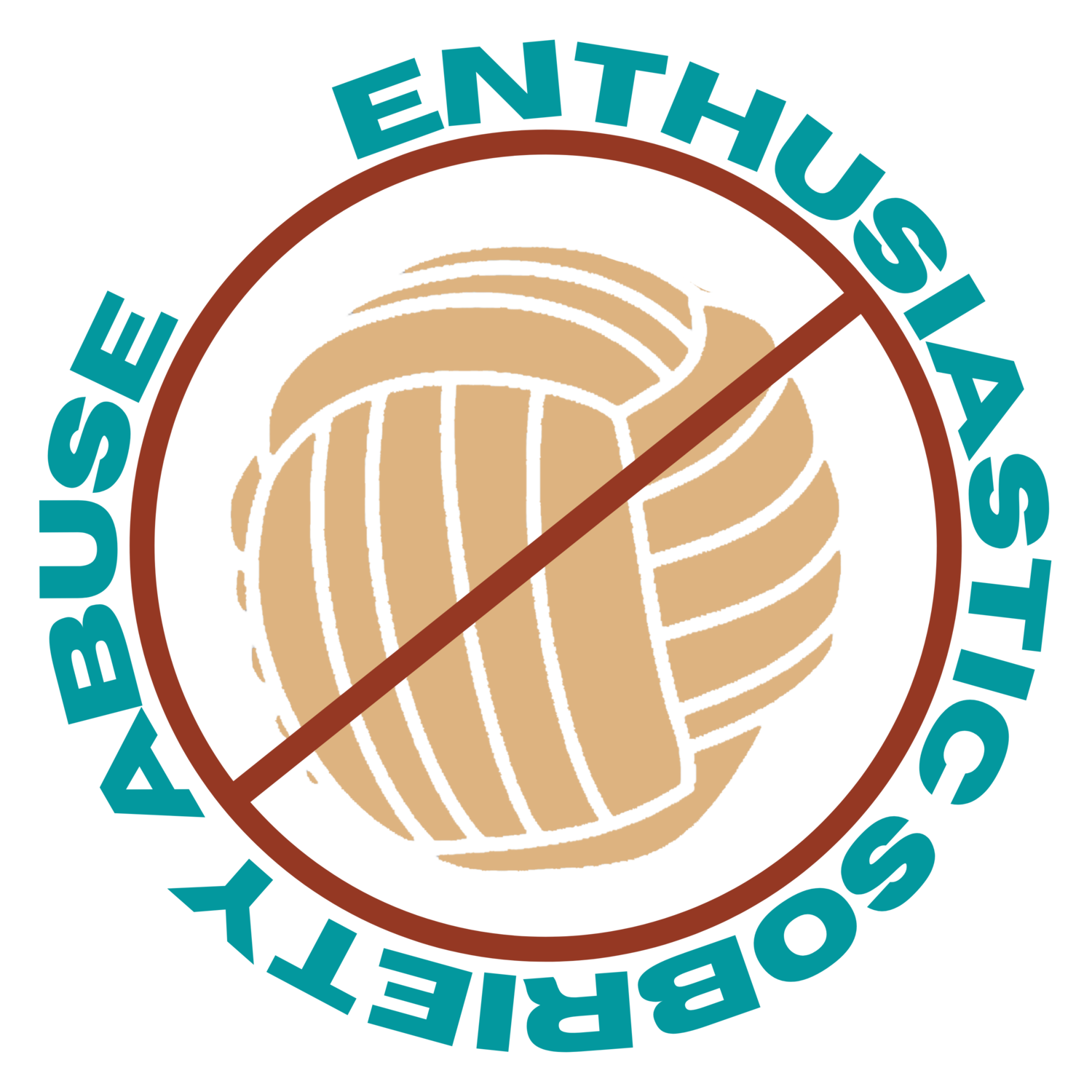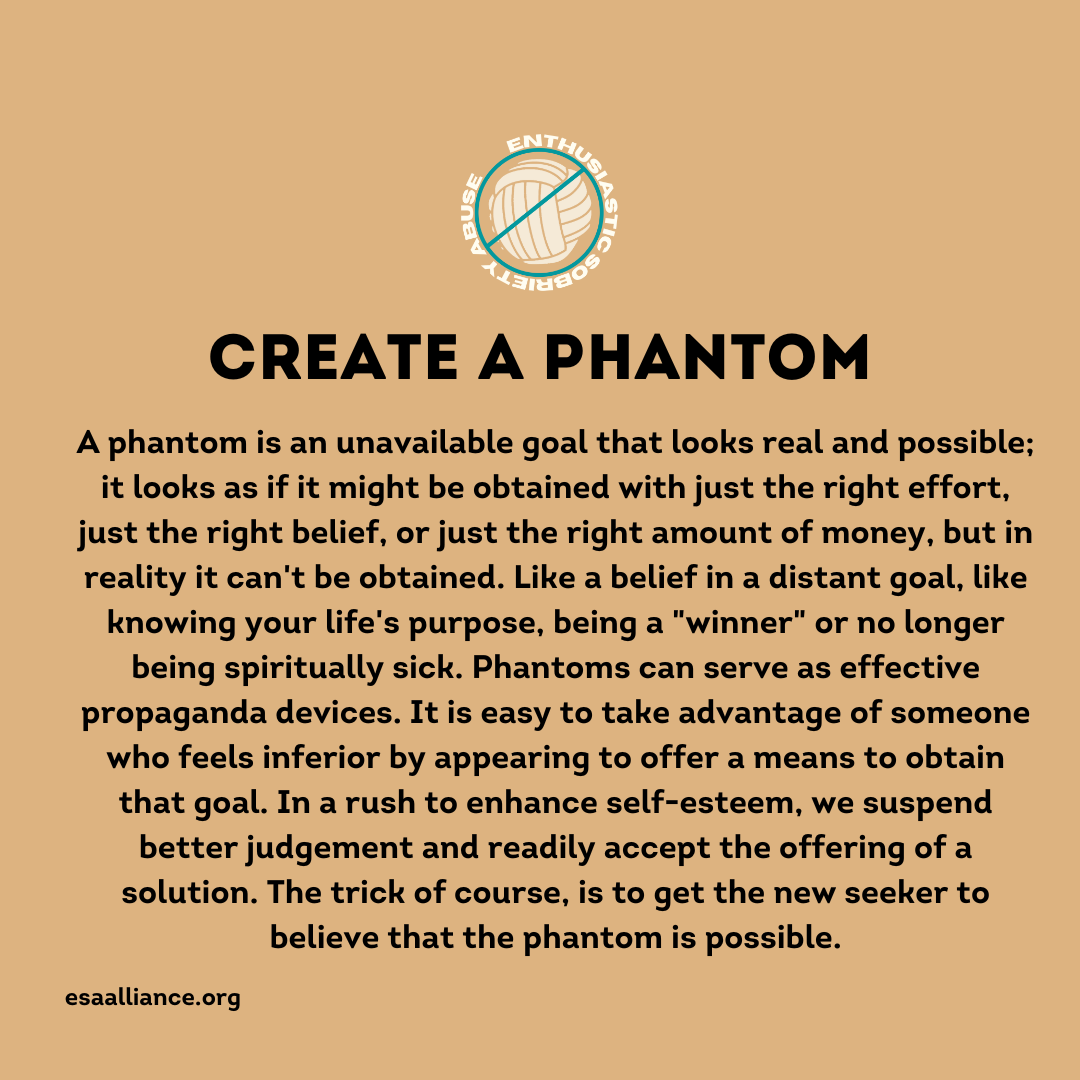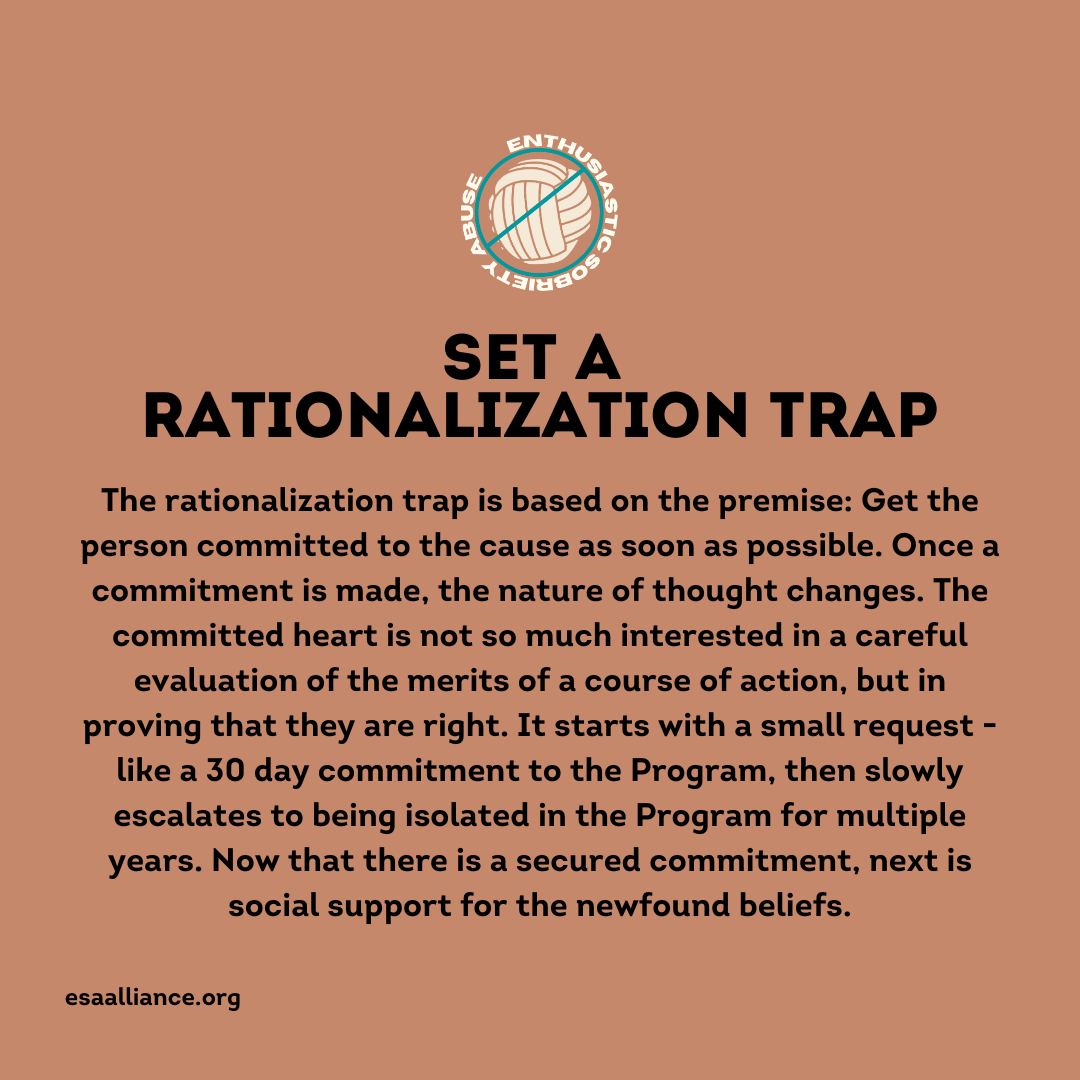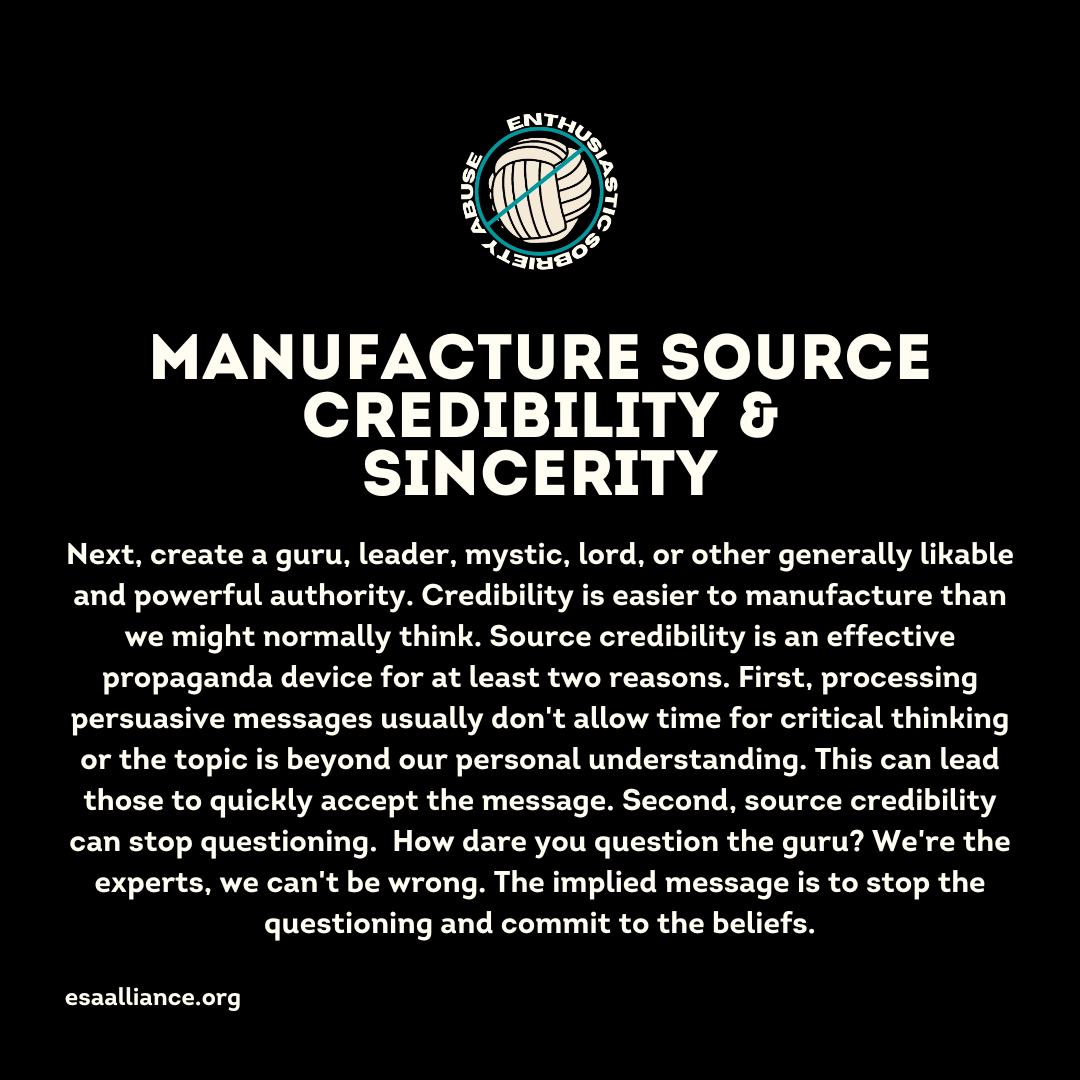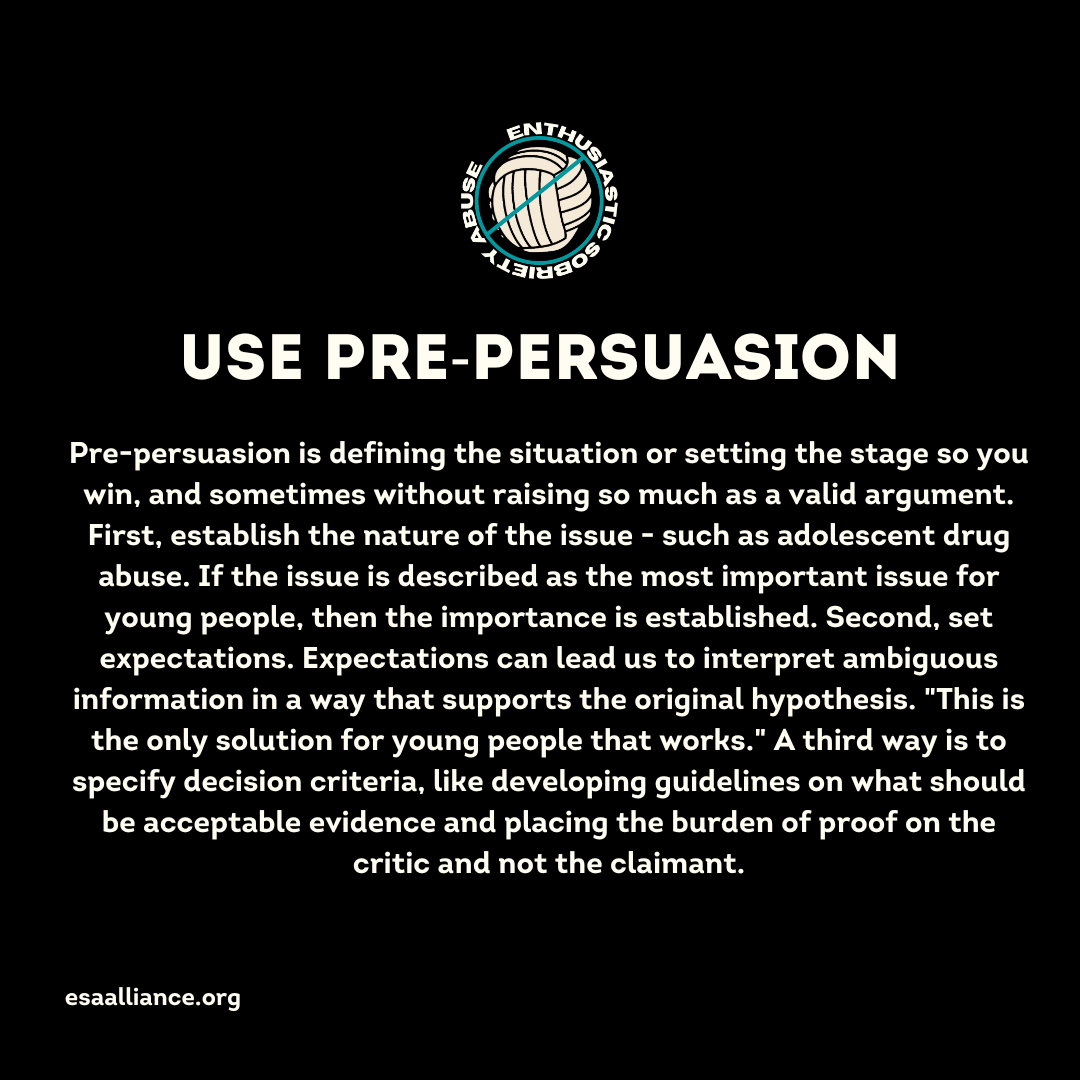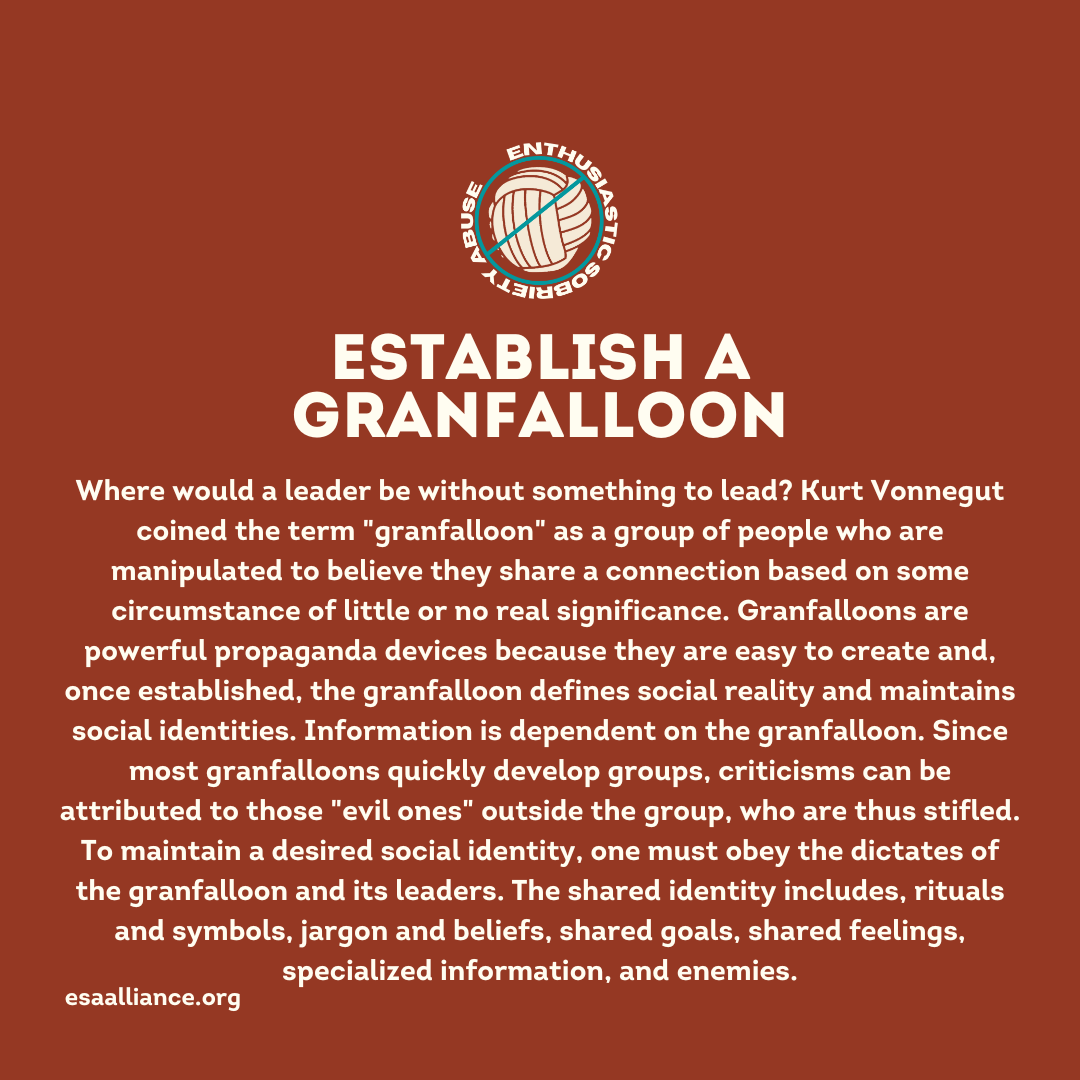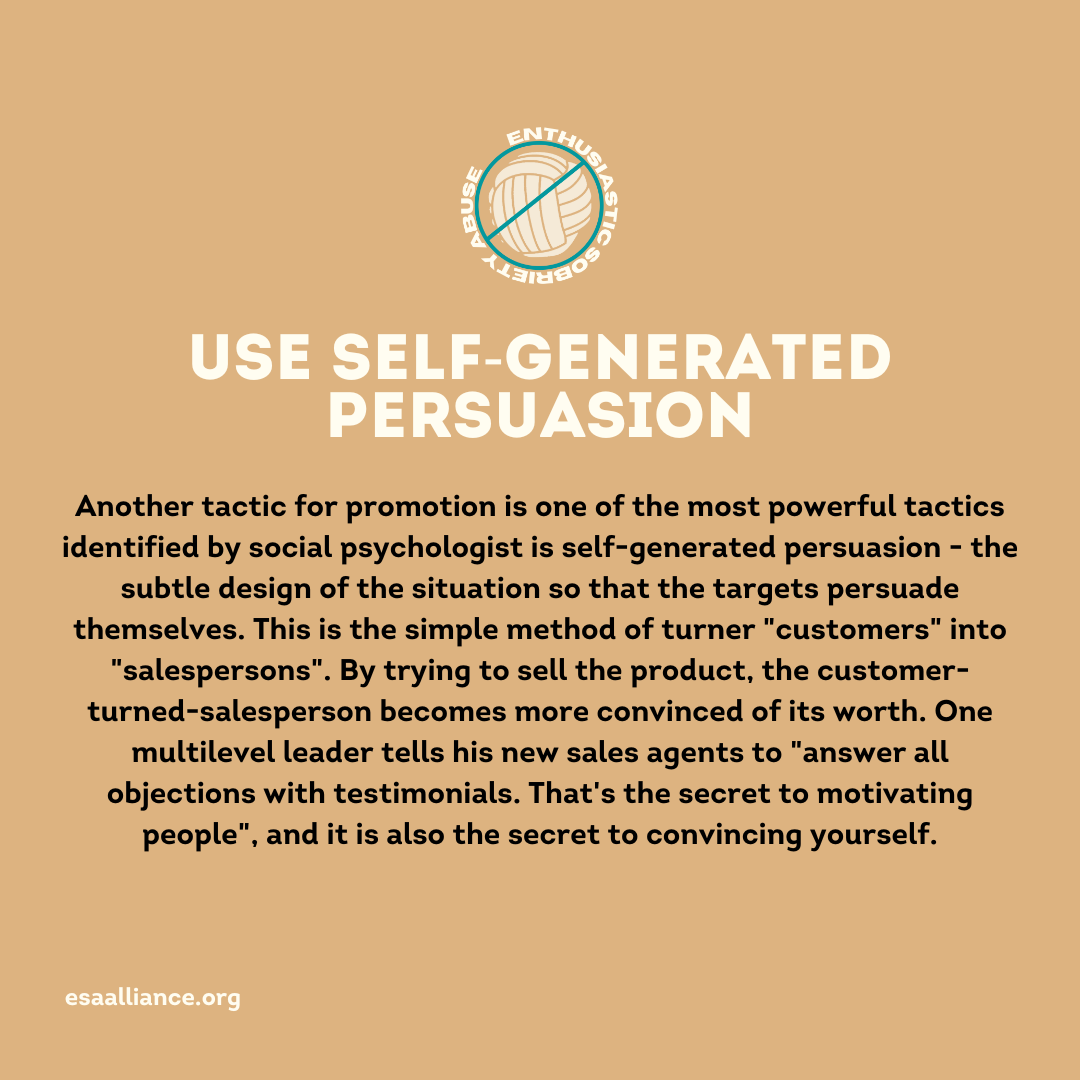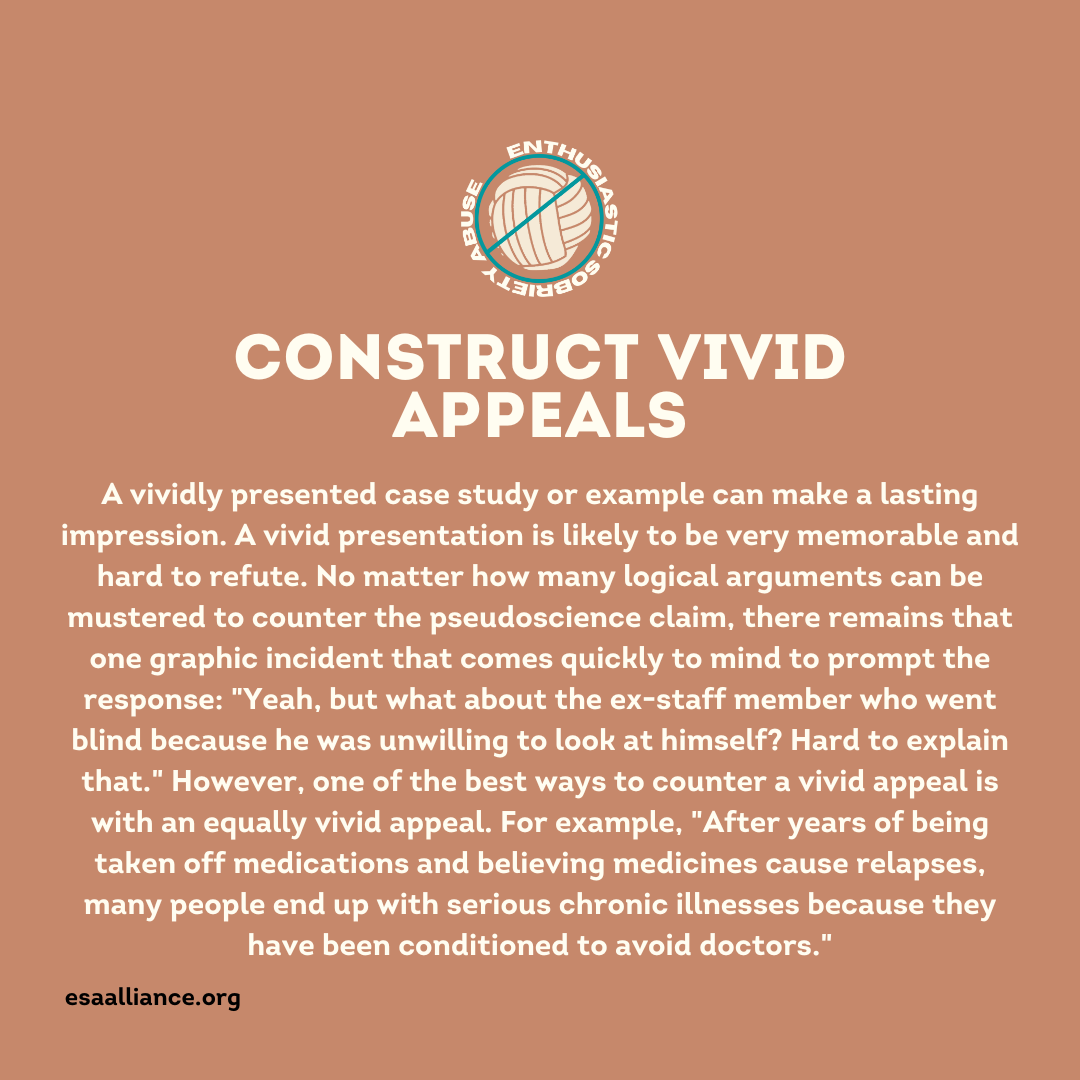Recognizing Unethical Persuasion Tactics
Unethical persuasion tactics are manipulative and deceptive strategies used to influence someone's thoughts, beliefs, behaviors, or decisions without their informed consent. These tactics exploit psychological vulnerabilities and bypass rational decision-making, often resulting in the person feeling coerced or pressured into taking actions they might not have chosen otherwise. Here are some examples of unethical persuasion tactics:
1. Manipulative Emotional Appeals: Intentionally exploiting someone's emotions, fears, or insecurities to manipulate their decisions. This can involve playing on their guilt, sadness, or anxiety without providing accurate information.
2. False Scarcity: Creating a false sense of urgency or scarcity to pressure individuals into making quick decisions without sufficient time for reflection or research.
3. Deceptive Information: Spreading false or misleading information to misrepresent facts and manipulate the person's understanding of the situation.
4. Bait and Switch: Advertising one thing but delivering something different. This can be used to lure people in with an appealing offer and then persuade them to choose a different, often more expensive option.
5. Exploitative Cult Tactics: In cult-like groups, tactics such as love-bombing (overwhelming affection) followed by isolation, manipulation of information, sleep deprivation, and emotional manipulation are used to control and indoctrinate members.
6. Guilt Tripping: Making someone feel guilty for not complying with the persuader's request, even if it goes against the person's values or best interests.
7. Fear-mongering: Exaggerating threats or potential negative outcomes to scare individuals into compliance or decision-making.
8. Pressure and Coercion: Applying direct pressure, manipulation, or even threats to force someone into making a decision they are uncomfortable with.
9. Exploiting Vulnerable Individuals: Targeting people who are vulnerable due to age, mental health issues, or emotional distress and taking advantage of their diminished capacity to make informed decisions.
10. Creating Dependency: Fostering a sense of dependence on the persuader by offering limited resources or emotional support, making it difficult for the person to make independent choices.
11. Misrepresentation of Expertise: Pretending to be an authority or expert in a certain field to gain credibility and persuade individuals to follow a certain path.
12. Social Isolation: Cutting off the person from their support network, leaving them more susceptible to the persuader's tactics and influence.
13. Overwhelming Information: Providing an overwhelming amount of information or using complex language to confuse and pressure the person into agreement.
14. Playing on Identity: Manipulating an individual's sense of identity, belonging, or values to coerce them into conforming to a particular viewpoint or behavior.
15. Financial Exploitation: Using deceptive tactics to extract money, assets, or resources from individuals, often leaving them financially vulnerable.
It's important to recognize these unethical tactics to protect yourself and others from manipulation and coercion. Ethical persuasion respects individuals' autonomy and provides them with accurate information, allowing them to make informed decisions that align with their own values and preferences.
